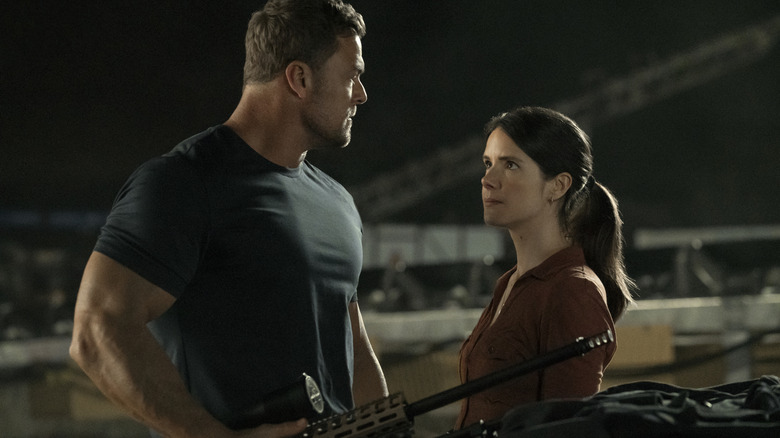Amazon's Prime Video Release Approach May Be More Effective Than Netflix's Binge-Drops
Since the onset of the streaming wars, we've all found ourselves picking sides in the fiercest debate currently raging: binging versus weekly releases. Most viewers of a certain age grew up with the usual week-to-week format, which affected everything from our patience levels to the episodic nature of television writing to our very perception of how entire seasons ought to unfold. Once Netflix arrived on the scene, however, the company's so-called binge model changed the game forever. As it turns out, audiences love them some shows that they can watch in one or two sittings, blasting through entire seasons before moving on to the next thing. Game, set, and match ... right?
Maybe the battle hasn't been decided just yet. The Hollywood Reporter shared details of a study by Carnegie Mellon University that may have just upended the balance of power all over again. In short, an experiment involving a number of viewers (with an average age of 49, so take that for what it's worth) tasked them with watching four shows released during the last decade or so — "Big Little Lies," "The Muppets," "The Young Pope," and "Unforgettable." The researchers were free to tinker with the release strategy, mixing in both binging and weekly options, before assigning one to each participant over the course of 10 total weeks. The numbers suggested that streamers may want to prioritize weekly releases, as this resulted in "a 48 percent greater short-term retention of subscriptions vs. binge-drops." That said, this also had its drawbacks (again, from a bean-counter's point of view) as weekly viewers typically opted to wait until multiple episodes released before starting a given show. Back to the drawing board.
Prime Video's more flexible approach, however, may have found the best possible solution between both extremes.
Prime Video shows bring the best of both worlds: binging and weekly
What if there was another way? In a perfect example of how a little give and take can go a long way, THR reports that the results of another study (this time, by analytics company Luminate) proved that everyone should be taking a page or two out of Prime Video's playbook. The streaming giant has quietly pioneered its own unique approach within this television landscape. Oftentimes, the first season of a new Prime Video series will drop all at once, as was the case with "Reacher" season 1 back in 2022. But should ratings prove strong, the platform reverts back to predominantly weekly releases in subsequent seasons. As an added twist, these seasons may debut with up to three episodes at once along with the premiere, before revering back to an episode-per-week format once again, as with "Reacher" seasons 2 and 3 and the recent sophomore season of "Gen V." (There are exceptions, of course, as the upcoming "Fallout" season 2 is scheduled for a routine weekly release.)
All of this adds up to a thoroughly convincing case study, backed by real data, that viewers will tend to stick with a series through this hybrid release. According to the study:
"Once a series has captured audience attention, the release model can be changed for subsequent seasons, keeping engaged viewers coming back week to week and, crucially, potentially keeping them subscribed for multiple months."
At a time when streaming suddenly seems to have lost much of its luster, at least one streaming service seems willing to bend the rules a bit. It's doubtful Netflix will change its ways anytime soon, of course, since it's currently doing just fine as the market leader. But perhaps others will look to Prime Video and take a similar approach.

